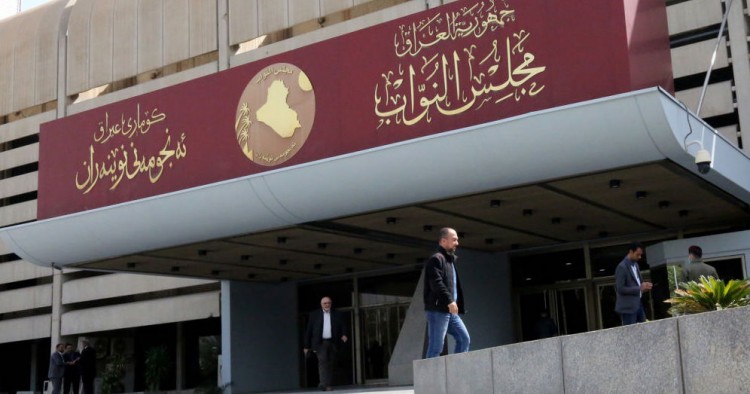The Shi’a political establishment nominated the head of the Iraqi intelligence apparatus, Mustafa al-Kadhimi, to the position of prime minister (PM). President Barham Salih designated the new candidate in an official ceremony on April 9, attended by almost all the major Shi’a parties, except for the head of the State of Law list, Nouri al-Maliki. The Kurds and the Sunnis were quick to announce their backing of the PM designate. The Iranian Ministry of Foreign Affairs announced its support as well, as did the United States State Department. Taken together, this domestic, regional, and international support for al-Kadhimi represents a rare agreement among various adversarial parties that was missing for his two predecessors, Mohammed Tawfiq Allawi and Adnan al-Zurfi.
Nevertheless, al-Kadhimi’s path to obtain confirmation of his cabinet from the Council of Representatives (CoR) is riddled with challenges. Shortly after his designation, there were already signs of intra-militia fragmentation. Two Iranian-backed militias, Sayyed al-Shuhada and Kata’eb Hezbollah, published inflammatory threats against the nomination, accusing the Shi’a parties of acquiescing to American pressure. It is still too early to tell how deep the rift among the militias goes, and whether these are true security pressures or merely political maneuvers by the Fatah list to secure ministerial positions in the new cabinet.
Despite the COVID-19 crisis and the country’s looming financial challenges brought on by plummeting oil prices and the anticipated huge budget deficit, Iraqi politics is still dominated by the political marketization of government institutions led by parties competing for spoils in a rentier state. Given that the public demonstrations have subsided substantially due to the implementation of stay-at-home measures to combat the spread of coronavirus, the political establishment will likely seize the opportunity to prolong political maneuvers to gain ministerial positions, which in turn could delay the confirmation of the new cabinet. In addition, the CoR confirmation of the al-Kadhimi’s cabinet can still be subjected to last-minute changes, given the uncertainty about the sustainability of the Shi’a consensus amid volatile fluctuations between the Shi’a parties. However, there are several dynamics that seem to guarantee the confirmation of al-Kadhimi’s cabinet. The U.S. has recently activated two Patriot anti-missile systems, one in Anbar and the other in Erbil, to counter Iranian ballistic missiles, and deployed their anti-Katyusha and mortar shell capability. This move strips the militias of their ability to threaten the American bases, and empowers the next Iraqi government to consolidate the use of force in the hands of the state. Also, given its enormous domestic problems, the Iranian regime’s goal is to continue Iraq’s gas and electricity imports. For the Iranians, al-Kadhimi can convince the American administration to extend the waiver, allowing Iraq to import Iranian gas and electricity, especially during the upcoming summer season. These Iranian calculations are crucial in taming the militias’ opposition to al-Kadhimi.
Should al-Kadhimi succeed in confirming his cabinet, he must tackle a number of urgent issues in the remainder of 2020. The new cabinet has to deal with the COVID-19 and economic crises; submit the 2020 national budget law; and reach an agreement with the Kurdistan Regional Government about the region’s share, along with hydrocarbons arrangements. Given the political and economic constraints, it is highly unlikely that al-Kadhimi will tackle the issue of the militias and the preparations for early elections in 2020. Most likely the new government will delay dealing with strategic and long-term issues until 2021, when it can further strengthen its political posture and governance policies.
Shahla Al-Kli is a non-resident scholar at the Middle East Institute and an expert in international development and political economy.
Photo by SABAH ARAR/AFP via Getty Images
The Middle East Institute (MEI) is an independent, non-partisan, non-for-profit, educational organization. It does not engage in advocacy and its scholars’ opinions are their own. MEI welcomes financial donations, but retains sole editorial control over its work and its publications reflect only the authors’ views. For a listing of MEI donors, please click here.













